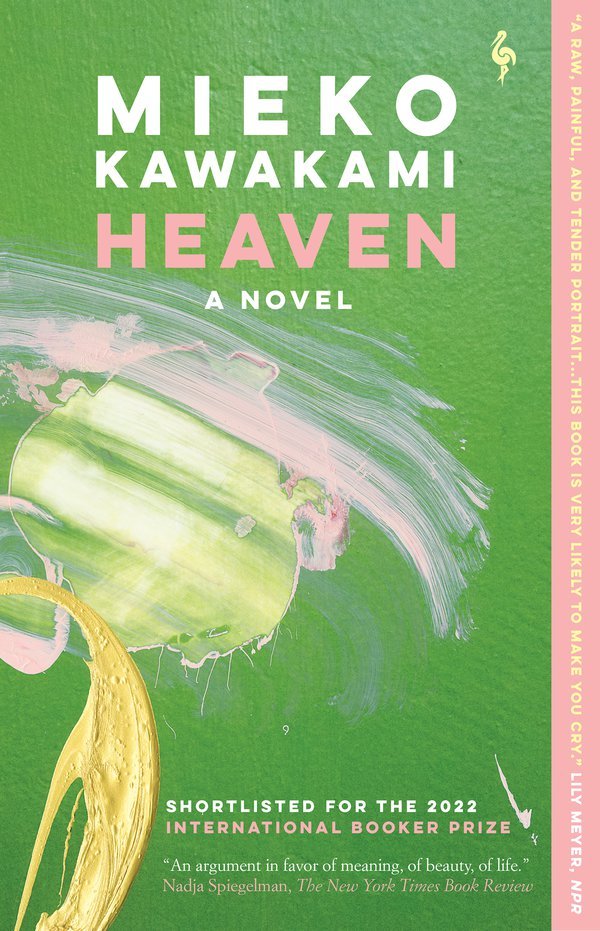A lot of my library holds started coming in this month, so I tore through an eclectic batch!
Five Little Indians by Michelle Good ⭐⭐⭐⭐
Chronicling the emotional fallout of a childhood trapped at residential school, Five Little Indians follows five Indigenous young adults as they struggle to make a life for themselves in a world where they can only depend on each other for support. This book came to me highly recommended and it’s no wonder why. It’s hard not to fall in love with these characters and the communities they build. What’s truly outstanding about the narrative though is not only how it shows the variety of ways trauma can be expressed, but also the variety of ways it takes to heal from it. On a technical level, I sometimes wished the language had a bit more shine, and there was a specific chapter in first person narration that missed the mark on the intended voice, but otherwise this is a very strong novel that packages difficult content into an accessible form. Absolutely recommended, even if it’s hard.
Trigger warnings: Abuse, sexual assault, violence, child death, suicide, racism.
Pure Colour by Sheila Heti ⭐
The premise of this book is that the world is in its first draft and the creator will soon paint over the canvas. What it delivers, however, feels like a first draft of an unfinished novel full of pseudo-philosophical deep thoughts. Pure Colour came so loudly lauded that I was almost certain it would turn into one of my instant favourites, but Heti’s attempts at profundity felt adolescent and the surrealism felt undeserved. Weaving together several threads of narrative, there was only one I found mildly interesting, but the protagonist behaved so irritatingly throughout it that I preferred the chapters where she was simply a leaf (this went on for a really long time). I appreciate that this book was exploring grief, and clearly from some of the other reviews online it seems to strike a chord to certain others so maybe I’m not the intended audience, but if you’re looking for a book that processes the death of a father, H is for Hawk by Helen MacDonald hits way harder. Also, Pure Colour mentions the protagonist’s father’s spirit “ejaculating” into her waaaayyy too many times for my liking. One time is too many and it’s more than that.
Tokyo on Foot by Florent Chavouet ⭐⭐⭐
In his first major graphic travel memoir, Florent Chavouet spends each chapter illustrating the character of different Tokyo neighbourhoods in his distinctive coloured pencil style. I’m a big fan of Chavouet, as I mentioned in my February Book Nook, and it was interesting to see his older work. Compared to Touiller le Miso and Manabeshima, it did lack some of that finished polish and smooth layouting that I’ve come to admire, but it was interesting to see how he evolved as an artist. I was less a fan of some of his character studies, however, which occasionally included the kind of racist stereotyping, homophobia, and plain mean-spirited notes about appearances that you’d find in an Adam Sandler romcom. Published in 2009 (and rendered during a trip earlier than that), suffice it to say, it felt a little dated at times.
Trust by Hernan Diaz ⭐⭐⭐⭐
What a fascinating novel. Trust is the story of a marriage between two high-class members of society in the 1920s - but told through the folding and refolding of four different perspectives. No single part of this novel tells the complete, honest truth. Instead, it meditates on what truth means, especially when twisted by influence and padded by affluence. Meanwhile, as we’re quietly meditating on truth, Diaz gets out the loudspeaker for a pervasive critique of wealth and the inherent sin of being wealthy. Perhaps because of the complexity of mingling these two themes, the result becomes a nuanced expression of the human condition. I loved the writing itself and his control over language was some of the best I’ve read in a while. It’s a novel that feels very timely and I appreciated the novelty of how these themes were explored.
Heaven by Mieko Kawakami (translated by Sam Bett and David Boyd) ⭐⭐⭐
It’s the 80s in Japan and a heavily-bullied middle-schooler receives a note in his desk that says, simply, “We should be friends”. I got this book after going into a shop with the promise to myself that I would not buy a book. I failed because once I’d read the first couple of pages, I was so immersed and emotionally invested that I simply had to know what happened. Like in Mieko Kawakami’s Breasts and Eggs, she has the ability to take a lot of smooth Japanese-lit tropes and give them some satisfyingly rough edges. Sometimes, the characters felt like they could be in an anime, but the world the interacted in felt like the backdrop of a different set. Other times, the set felt clean and perfect and it was the characters who were splotchy with imperfection. The tension of the plot felt like a tightly wound elastic, ready to spring or be torn apart at any moment, and this was mostly accomplished by the somewhat surreal relationship the protagonist has with his foil. Not everything hit the mark - one pivotal scene felt like it lost control of the dialogue and the ending for one character felt particularly unsatisfying - but generally I found the pages melting away. Great for fans of Japanese lit looking for something a little different.
Trigger warnings: Abuse, violent bullying, self-harm.
And that’s a wrap on March! Thought these reviews were on point? Don’t agree with something I said? Let me know in the comments below! I am but a humble reader whose opinions can’t possibly represent the myriad complexities of these books and would to hear your own thoughts.
Happy reading!






